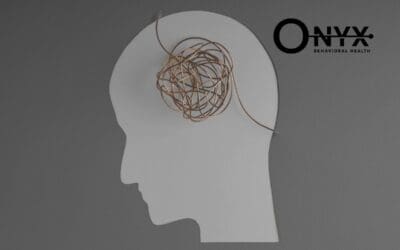Borderline Personality Disorder

Borderline Personality Disorder, also known as BPD, can make you feel unable to manage your emotions. Has your lack of emotional control led to increased impulsivity, insecurities, and trouble managing relationships?
These are hallmark characteristics of Borderline Personality Disorder. It affects an estimated 1.6% of the population and is associated with multiple medical and psychiatric co-morbidities.
%
of the adult U.S. population experiences BPD
%
of people diagnosed with BPD are women
What is Borderline Personality Disorder?
Not to be confused with bipolar disorder, borderline personality disorder is a condition where an individual experiences rigid and unhealthy thought patterns such as hypersensitivity to rejection. These thought patterns are problematic to the point that they disrupt relationships, lead to self-image issues, and lead to disruptive behaviors. For some, this mental health disorder can be severe. However, with proper diagnosis and treatment, it can be managed and you can lead a healthy, happy life.
Symptoms
Unsure if you or a loved one has borderline personality disorder? There are a number of signs and symptoms to look out for. Keep in mind that it is possible to exhibit some or all of these symptoms, which include:
Constant fear of abandonment & taking action to avoid real or perceived abandonment
A general pattern of intense and unstable relationships
Distorted and unstable self-image
Impulsive and often dangerous behaviors, such as spending sprees, unsafe sex, substance misuse, reckless driving, and binge eating. However, if these behaviors happen mostly during times of elevated mood or energy, they may be symptoms of a mood disorder and not borderline personality disorder.
Recurring thoughts of suicidal behaviors or threats
Intense and highly variable moods, with episodes lasting from a few hours to a few days.
Chronic feelings of emptiness
Inappropriate, intense anger or problems controlling anger
Feelings of dissociation, such as feeling cut off from oneself, observing oneself from outside one’s body, or feelings of unreality
Risk Factors
Just like any other condition, some factors could make an individual more or less likely to develop borderline personality disorder. For instance, with 75% of cases being among women, one’s sex or gender if one of those factors. Additional factors include:
- Genetics – The presence of borderline personality disorder in family members.
- Environmental factors – Past traumatic life experiences such as physical, emotional, or sexual assault.
Diagnosis & Treatment
As with any mental health condition, you should consult your physician or a mental health professional if you are experiencing symptoms of borderline personality disorder. Your care team may conduct a number of tests to evaluate your physical and mental state. A diagnosis will ultimately be determined based on whether you meet the criteria set out in the DSM-V.
As borderline personality disorder does have several common co-morbidities, residential treatment programs are typically an effective option for individuals with this diagnosis. While treatment plans are always individualized, they most often include multiple types of talk therapy such as:
For stabilization purposes and for those who do not respond to talk therapy alone, medications are a reasonable and effective option for managing the symptoms of this condition.
Learning to Live with Borderline Personality Disorder
While there is no “cure” for borderline personality disorder, it is possible to learn to live healthy and happy life long after a diagnosis. At Onyx, our care team is here to set you up for success with tools, tips, and strategies for managing your diagnosis. We are here to help you live your best life one day at a time. If you are ready to take the first step to overcoming your mental health challenges give us a call right now.
Discover Healing with Onyx Behavioral Health
Related Articles
The Surprising Face of Borderline Personality Disorder
When most people think of Borderline Personality Disorder (BPD), they often picture someone impulsive, emotionally unstable, or difficult to get along with. However, BPD is far more complex than these surface-level stereotypes. Many cases go undiagnosed or...
Understanding Additional Trauma-Related Disorders: Beyond PTSD
While Post-Traumatic Stress Disorder (PTSD) is widely recognized, it is not the only condition that can arise from traumatic experiences. Understanding the full spectrum of trauma-related disorders is crucial for providing comprehensive care and support. These...
Managing Borderline Personality Disorder
Borderline Personality Disorder (BPD) is a complex mental health condition characterized by intense emotions, unstable relationships, and impulsive behaviors. Those living with BPD often experience a tumultuous inner world where emotions can rapidly shift, making...




 Kendra Cemoin
Kendra Cemoin Michaela Welk, LMHC
Michaela Welk, LMHC Bunny Berman
Bunny Berman Tank
Tank Richard E. LoSardo, MD
Richard E. LoSardo, MD Christopher Payne
Christopher Payne Bernard Benjamin
Bernard Benjamin